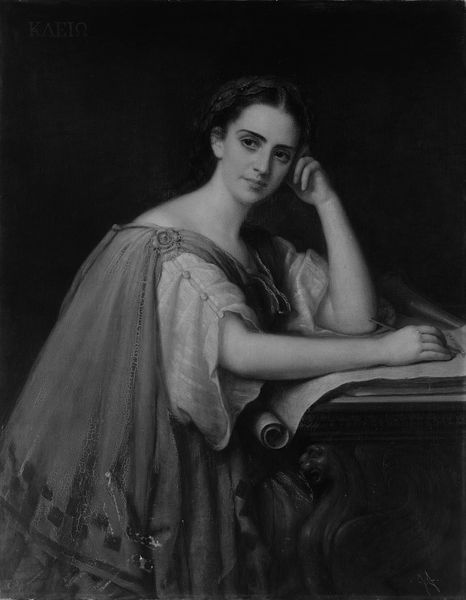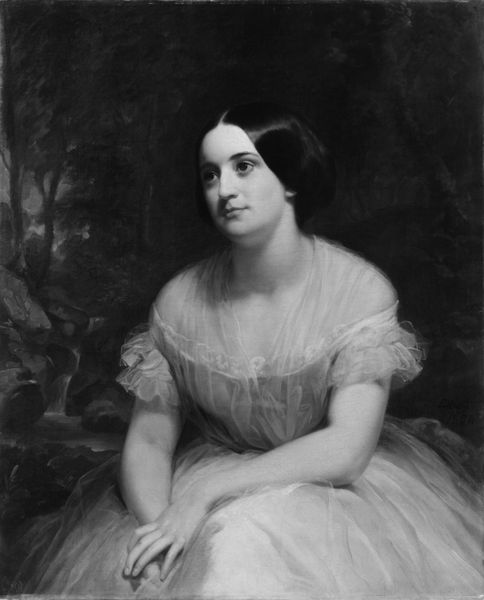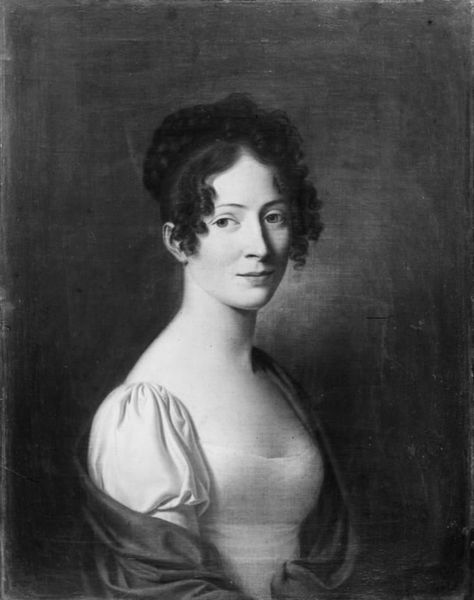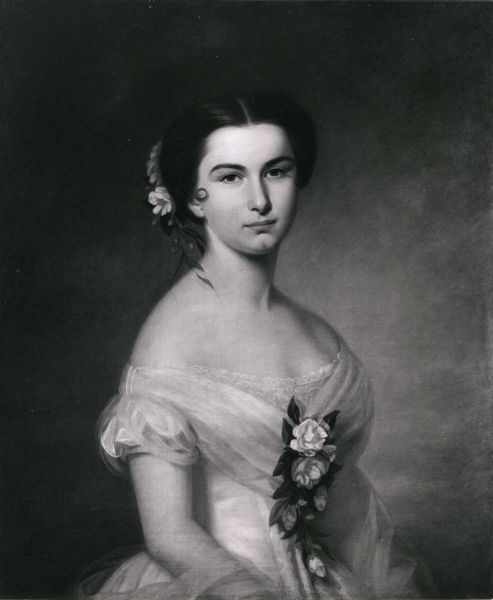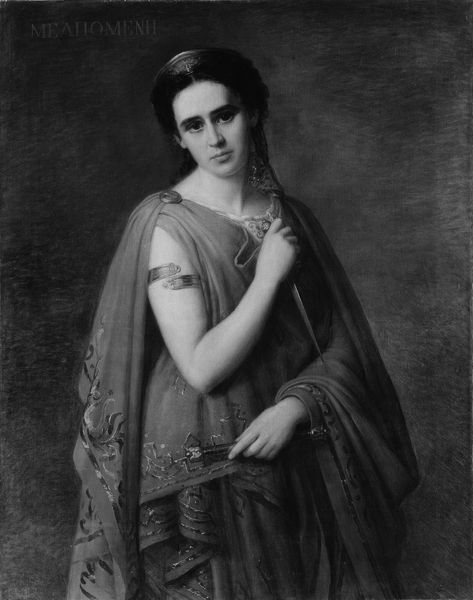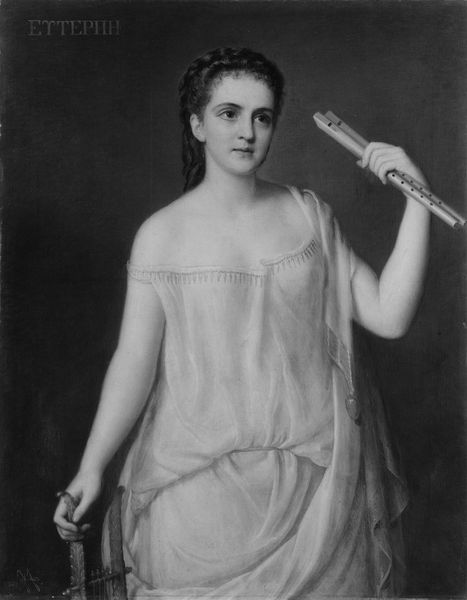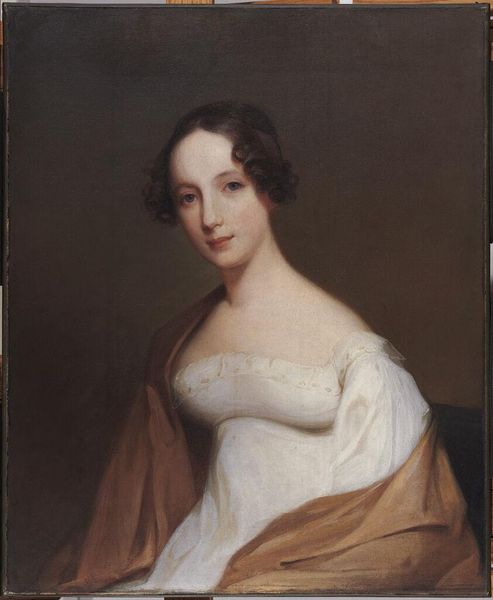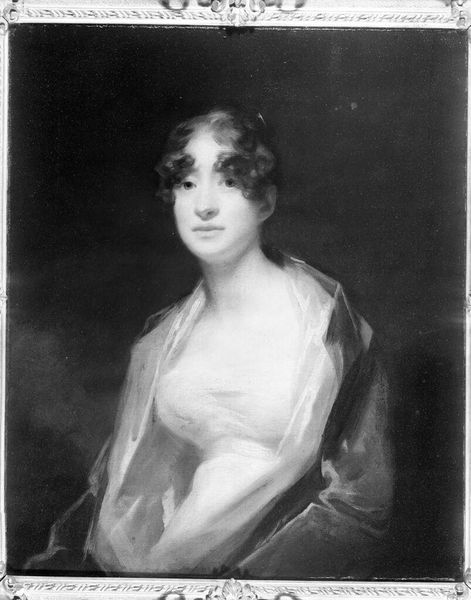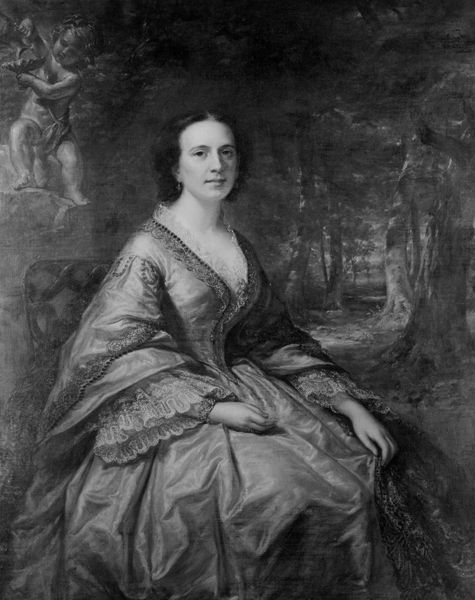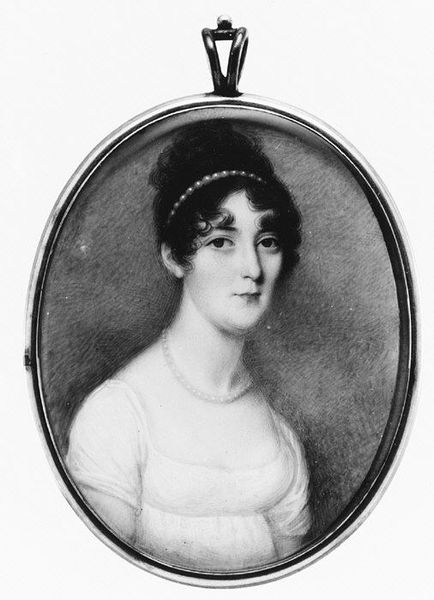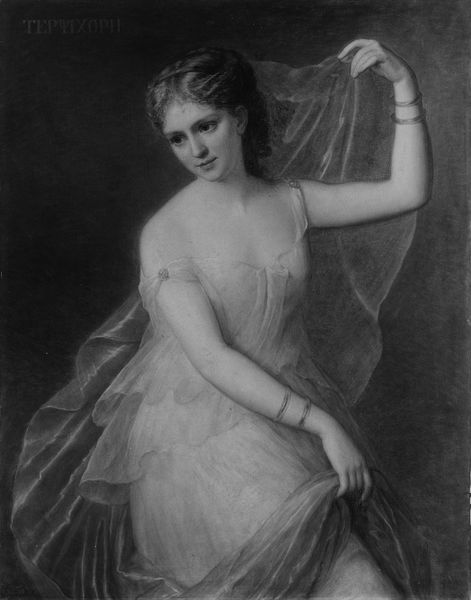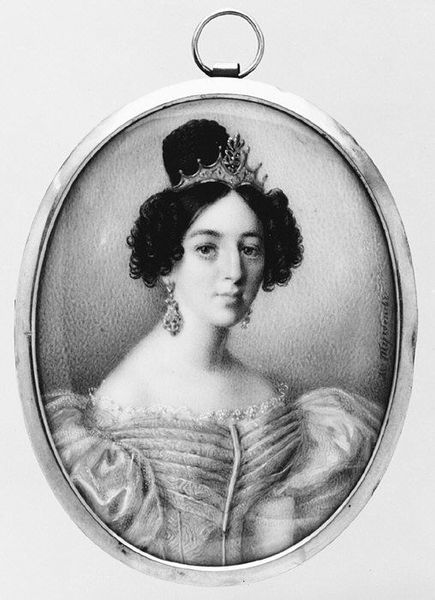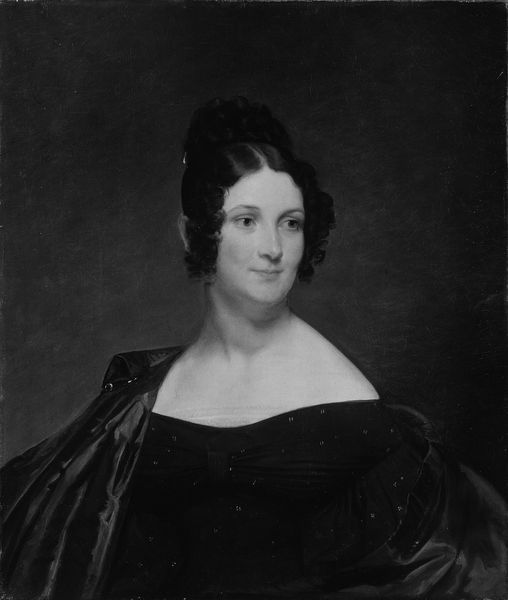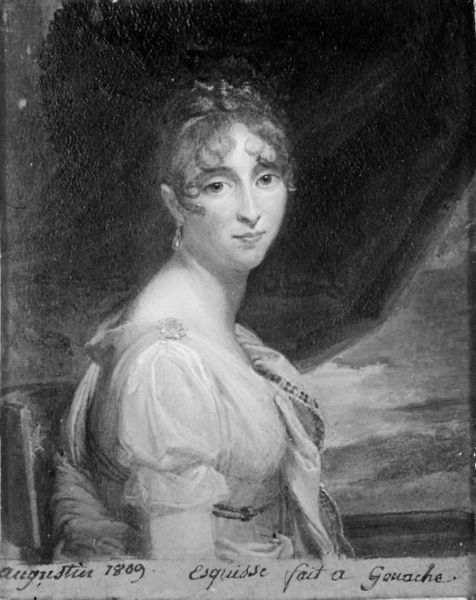
Dimensions: 43 1/2 x 33 1/2 in. (110.5 x 83.8 cm)
Copyright: Public Domain
Curator: Joseph Fagnani's 1869 painting "Thalia" resides here at the Metropolitan Museum of Art. Editor: Well, the first thing that strikes me is how unfinished it seems. There’s a quality to the stark lighting, which could be more of a reflection of how these materials age over time than about any statement of finality. Curator: That unfinished quality might be part of its charm! It feels like a glimpse into a soul still in formation, don't you think? Almost a little haunting, especially the way she's holding the mask of comedy, almost as if offering it up... or maybe shielding herself? Editor: Mask of comedy, eh? It looks more like a plaster cast in need of aggressive sanding. My read here goes deeper. Considering Fagnani’s time— the burgeoning industrial revolution was upending artistic labor itself. Even paint was increasingly premixed, industrialized. This seems a self-aware commentary, perhaps even lament, on authenticity in a rapidly changing world. Curator: A lament, maybe...or perhaps it’s about what persists even when techniques change. What do you make of her garment? I keep thinking how ethereal she seems, how it’s practically falling off, a deliberate gesture toward something. Editor: That so-called garment looks awfully contrived. Fabric held in a pose, meant for consumption, bought at market… But think how the material itself constructs “Thalia.” The texture, weave, source – all are vital for interpreting it; yet this level is mostly ignored. Curator: Right, it's easy to forget the labor involved. That tension – what’s displayed versus what’s concealed—is, I think, central to Fagnani's work. Editor: That's where the real meaning lies, not just in some abstract notion of 'muse' but in understanding labor as value. Curator: And sometimes, the value comes in revealing the humanity beneath the ideal, right? Maybe it's a mirror after all, and she's showing us something not about history or production but ourselves. Editor: Well, it has certainly prompted me to reflect a bit longer about what gets included and what we omit from considerations of historical importance when regarding paintings such as "Thalia." Curator: Absolutely, this has given me a new appreciation for the personal reflected against the classical and, like looking into that metaphorical mirror, the need to maybe adjust our own historical viewpoint.
Comments
No comments
Be the first to comment and join the conversation on the ultimate creative platform.
